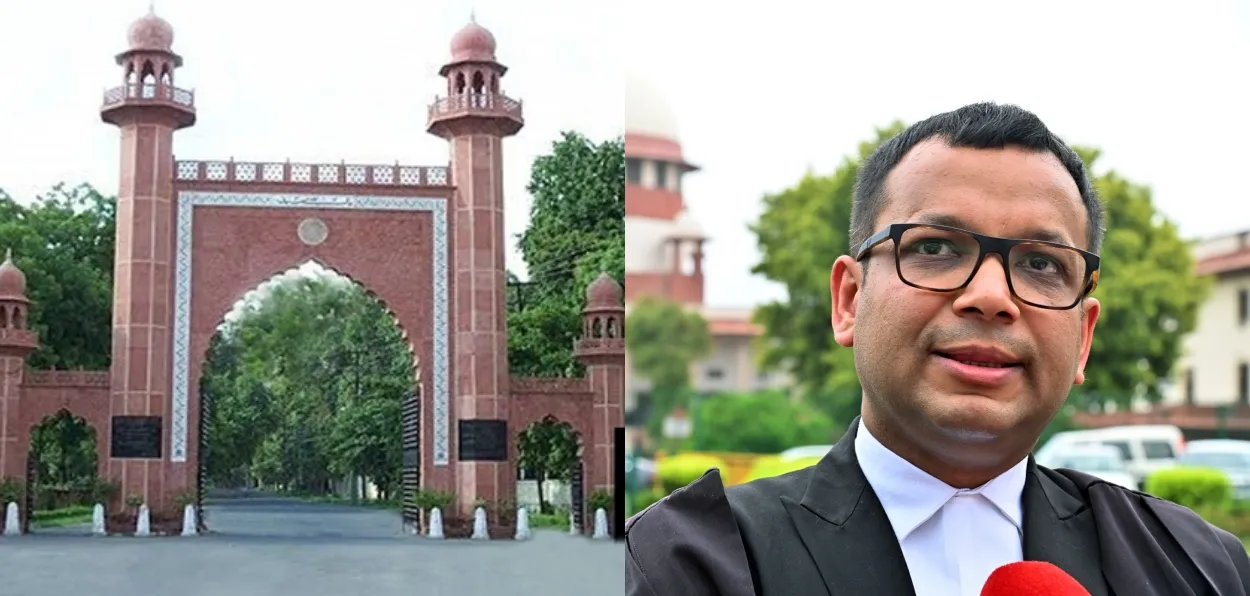
New Delhi
After Supreme Court decided to overrule the S Azeez Basha versus Union of India case which in 1967 held that since the Aligarh Muslim University was a Central university, it could not be considered a minority institution, Lawyer and petitioner Shadan Farasat stated that it is "very likely" that AMU as an institution, as it exists, is going to meet all those requirements which have been laid down by the court to be a minority institution.
"Given the nature of the test which has been espoused by the majority today, it is quite likely that AMU as an institution, as it exists, is going to meet all those requirements which have been laid down by the court," Shadan Farasat said while speaking to media persons outside Supreme Court after the verdict.
The apex court by a 4:3 majority verdict earlier today said the issue of AMU minority status to be decided by a regular three-judge bench.
The bench said that to determine whether an institution is a minority institution, what needs to be looked at is who established the institution.
Describing the verdict, Shadan Farasat said, "The court 4:3 held that the 1963 judgment which held that AMU is not a minority institution was incorrect and it is overruled. It has set parameters for what is required for an institution to be established by a minority to meet that constitutional test under Article 30, that test includes everything in terms of how the institution was established, its history, the community that was involved, and various other aspects."
Just a reminder: Aligarh Muslim University (AMU) does not provide reservations based on religion or caste. Admissions are solely merit-based, ensuring equal opportunities for all students. #AMU #EducationForAll pic.twitter.com/SFvAJzDU64
— VOICE OF INDIA (@VOICEOFINDIAN02) November 8, 2024
He further noted that the issue of whether the AMU is a minority institution will be determined by a smaller bench.
Reacting to the verdict on AMU minority status, Yasoob Abbas, General Secy and spokespersons of All India Shia Personal Law, says, "I welcome this verdict because it is hoped that the 3-judges bench of Supreme Court will give a favourable judgment to continue the minority status of Aligarh Muslim University..."
A five-judge Constitution bench in the S Azeez Basha versus Union of India case in 1967 held that since AMU was a Central university, it could not be considered a minority institution.
The university got back its minority status when Parliament passed the AMU (Amendment) Act in 1981.
Professors of the AMU have welcomed the Supreme Court's ruling:
Aligarh, Uttar Pradesh: On the Supreme Court's ruling that Aligarh Muslim University is entitled to minority status under Article 30
— IANS (@ians_india) November 8, 2024
Professor Mohammad Asim Siddiqui, AMU, says, "It was a long legal battle, and we were preparing very diligently for this case. This judgment has… pic.twitter.com/dzb7h8Mn0a
However, in January 2006, the Allahabad High Court struck down the provision of the 1981 law by which the university was accorded minority status.
Meanwhile, speaking to media persons, Vice Chancellor of AMU, Naima Khatoon said, "We honour the judgment. We will discuss with our legal experts for the next course of action."
Aligarh, Uttar Pradesh: On the Supreme Court's ruling that Aligarh Muslim University is entitled to minority status under Article 30
— IANS (@ians_india) November 8, 2024
Mohammad Wasim Ali, Proctor of AMU, says, "We fully welcome this decision and hope that we will benefit from this ruling in the future as well.… pic.twitter.com/2xlp9ebPcx
